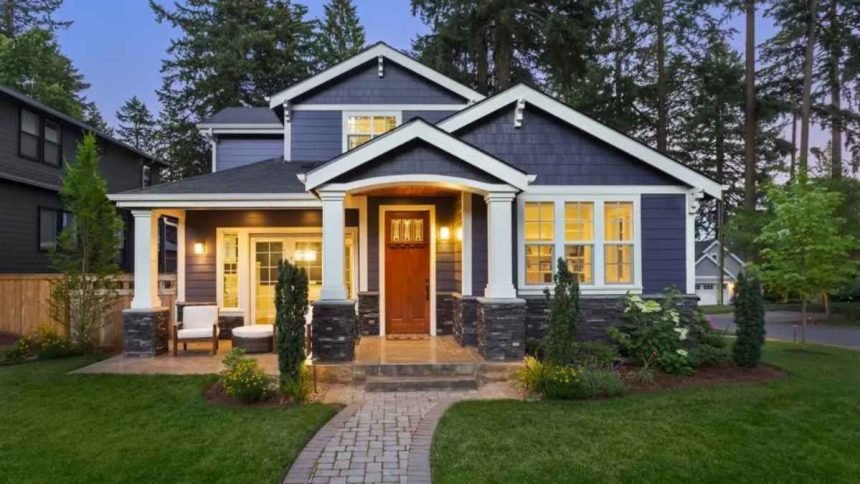Introduction to the Construction Industry and the Importance of Yard Space in the US and Canadian construction industries.
In the ever-evolving landscape of the construction industry, the importance of having adequate yard space cannot be overstated. Yard space plays a crucial role in the overall operations of a construction company. It serves as a storage area for equipment, materials, and sometimes even constructed units. Without sufficient yard space, a construction company may face significant challenges that could hamper its productivity and profitability.
Moreover, yard space is not solely about storage. The strategic layout and organization of the yard can greatly enhance operational efficiency. A well-planned yard can streamline workflows, reduce unnecessary movement, and minimize the risk of accidents. Thus, finding the perfect yard to rent can significantly contribute to the success of a construction business.
However, the process of finding an ideal yard for rent in the construction industry can be difficult. With various factors to consider and myriad options available, making the right decision requires careful thought and thorough research. This comprehensive guide aims to assist you in this endeavor, providing you with the necessary knowledge and insights to make an informed decision.
Understanding the Concept of a Yard for Rent
Renting a yard has become a popular choice for many construction companies. It offers numerous benefits, such as flexibility, cost-effectiveness, and convenience. When we talk about a yard for rent, we refer to a plot of land leased to a company or individual for a specified period.
Typically, these yards are open spaces without any structures. However, some yards may come with existing buildings or features, such as warehouses, offices, or fences. The choice between an empty lot or a yard with existing structures depends on your specific needs and budget.
Renting a yard can be an ideal solution if you need additional space temporarily or if you want to avoid the high costs and commitments associated with purchasing land. Besides, it can also be a practical option when you need a site near a specific project location.
How to Identify the Perfect Construction Yard for Rent
Finding the perfect construction yard for rent may seem like a daunting task, but with the right approach and considerations, it can be relatively straightforward. The first step is to clearly define your needs. Consider the size of the yard, its location, accessibility, and any specific features you may require.
Once you have a clear idea of what you need, you can begin your search. You can use online platforms, real estate agencies, or personal contacts to find available yards for lease near you. Look for yards that match your criteria and make a shortlist.
After shortlisting potential yards, you should visit each site personally. A site visit allows you to assess the condition of the yard, its suitability for your operations, and any potential issues that may not be apparent from photos or descriptions. After visiting all shortlisted yards, you can compare them based on your needs and preferences, and choose the one that best fits your requirements.
Factors to Consider when Renting a Construction Yard
Renting a construction yard involves several important considerations. One of the most crucial factors is the size of the yard. The yard should be large enough to accommodate your equipment, materials, and operations comfortably. However, it shouldn’t be so large that you’re paying for unused space.
The location of the yard is another important factor. Ideally, the yard should be conveniently located near your current or upcoming projects. This reduces transportation costs and time. Additionally, the yard should be easily accessible by road for easy transportation of equipment and materials.
Security is also a vital consideration. The yard should have adequate security measures in place to protect your assets. This could include fencing, lighting, surveillance cameras, or security personnel.
Finally, consider any specific features you may need. For example, you may require a yard with a warehouse for storing materials, an office for administrative tasks, or a workshop for equipment maintenance.
The Benefits of Renting Construction Yards
Renting a construction yard offers numerous benefits. First, it’s cost-effective. Renting allows you to avoid the high initial costs of purchasing land. It also enables you to better manage your cash flow as rental costs are predictable and can be budgeted for.
Another benefit is flexibility. Renting allows you to easily scale up or down your yard space as your needs change. You can rent a larger yard when you have more projects and a smaller one when your workload decreases.
Renting also offers convenience. It saves you from the hassles of property ownership, such as maintenance, property taxes, and insurance. Plus, you have the flexibility to move to a better location or a different yard if your needs change.
Industrial Zoned Land: What it is and Why it Matters
In the context of renting a yard for construction purposes, zoning is a critical factor to consider. Zoning regulations determine the types of activities that can occur on a particular piece of land. For construction yards, you’ll typically need industrial zoned land.
Industrial zoning is designed for manufacturing, distribution, and other industrial activities. This type of zoning often allows for heavier uses than commercial or residential zoning. Thus, a construction yard, which involves storage of heavy machinery, materials, and potentially noisy operations, fits well within industrial zoning.
By ensuring that the yard you rent is correctly zoned, you not only comply with local laws and regulations but also minimize potential conflicts with neighboring properties. Always check the zoning status of a potential yard before signing a lease agreement.
Popular Locations for Construction Yards for Rent in the United States
The popularity of a location for construction yards for rent often depends on several factors. These may include proximity to major transportation routes, availability of labor, and local economic conditions.
Some popular locations for construction yards for rent in the United States include Houston, Texas; Los Angeles, California; and Atlanta, Georgia. These cities offer robust infrastructure, thriving construction industries, and large labor pools, making them ideal for construction yard rentals.
However, the ‘perfect’ location will ultimately depend on your specific needs. A location that is convenient for your projects, employees, and suppliers will likely be the most beneficial.
Costs Associated with Renting a Construction Yard
Several costs are associated with renting a construction yard. The most obvious is the rent itself. Rent typically depends on the size of the yard, its location, and any additional features it may have.
There may also be additional costs such as security deposits, utility bills, or maintenance fees. If the yard has existing structures like offices or warehouses, there may be costs for upkeep and repairs.
In some cases, you may also have to pay for improvements to the yard, such as installing fencing, lighting, or security systems. Always make sure to clarify all potential costs with the landlord before signing a lease agreement.
Negotiating the Best Deal for Your Construction Yard Lease
Negotiating a lease agreement can be a complex process, but with some preparation and understanding of the process, you can secure a favorable deal.
First, make sure you understand all the terms and conditions of the lease. This includes the rent, lease duration, responsibility for repairs and maintenance, and any restrictions on the use of the yard.
Next, clarify all costs. Make sure you understand what costs are included in the rent and what costs are additional. You should also discuss any potential future costs, such as rent increases or charges for improvements.
Finally, don’t be afraid to negotiate. If you think the rent is too high, or if there are terms in the lease you’re not comfortable with, discuss these with the landlord. It’s often possible to reach a mutually beneficial agreement with some negotiation.
Case Studies: Success Stories of Businesses Renting Construction Yards
There are numerous success stories of businesses that have benefited from renting construction yards. For example, a small construction firm in Houston, Texas, rented a yard to store their equipment and materials. This not only saved them the cost of purchasing land but also allowed them to be closer to their project sites, reducing transportation costs and time.
Another example is a construction company in Los Angeles, California, who rented a yard with an existing warehouse. The warehouse provided them with a secure storage area for their materials, reducing losses due to theft or damage. The yard also had an office, which improved their administrative efficiency.
These examples illustrate how renting a construction yard can provide practical, cost-effective solutions for construction businesses.
Conclusion: Unlocking the Potential of Your Business with the Right Yard for Rent
In conclusion, finding the perfect yard for rent can significantly contribute to the success of your construction business. It offers a cost-effective, flexible, and convenient solution for your yard space needs.
By understanding your needs, considering important factors, and conducting thorough research, you can find a yard that not only meets your operational requirements but also helps in unlocking the potential of your business.
Remember, the journey to finding the perfect yard for rent in the construction industry may be challenging, but with the right approach, it can certainly be rewarding. So, start your search today and take a step towards enhancing your business’s efficiency and profitability.
Lynn Martelli is an editor at Readability. She received her MFA in Creative Writing from Antioch University and has worked as an editor for over 10 years. Lynn has edited a wide variety of books, including fiction, non-fiction, memoirs, and more. In her free time, Lynn enjoys reading, writing, and spending time with her family and friends.















